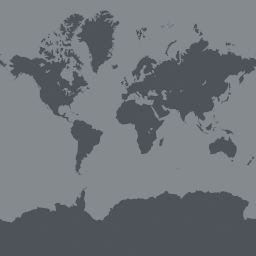Freshwater biodiversity remains relatively understudied in Sub-Saharan Africa, especially the Indian Ocean Islands (IOI). The IOI are characterised by unique biodiversity exhibiting high levels of endemism, vulnerable to threats from invasive alien species, anthropogenic impacts and global climate change.
While some groups of aquatic insects, such as Odonata, are fairly well documented in the IOI, others critical to river health assessments, namely Ephemeroptera, Plecoptera and Trichoptera (EPT) are not. Among other important indicator organisms such as diatoms, levels of available data are also poor.
Headed by researchers at the Institut Supérieur de Sciences, Environnment & Développement Durable (ISSEDD) of the University of Toamasina, this project will address the need to manage the collation, digitization, amendment and publishing of existing data for EPT and diatoms from the IOI to GBIF.org. Sampling efforts will be coordinated on the islands using citizen science tools in order to create awareness and obtain new distribution records. In addition to GBIF, collated data will be integrated into the Freshwater Information Platform (FIP) for assisting conservation efforts and monitoring of threatened or alien invasive taxa.
Focusing on expansion of freshwater knowledge through citizen science, capacity development and the delivery of integrated data to end-users, this project, aligned with platforms such as GBIF & FIP, will create the means to improve knowledge of IOI freshwater biodiversity and assist freshwater conservationists and policy makers.
Project Progress
In collaboration with 4 museums (Natural History Museum Lo, Muséum National d'Histoire Naturelle, Albany Museum and Texas A&M) where EPT (Ephemeroptera, Plecoptera and Trichoptera) taxa are located, the project has been able to check specimen records, capture and then recheck data. Thus, the project has published 186 records of Trichoptera to the GBIF website. The data was obtained from both museum records and gleaned carefully from literature. Project updates are also to be found on the GroundTruth website.
With the projects end, a combined total of 5,646 species occurrence records have been published to GBIF on EPT and diatom data. Of these, 5,313 records are related to the EPT taxa and include species occurrence data obtained from museum records and historical literature, while the rest are 333 diatom species occurrence records derived from historical literature only. The data will be utilized in the next Red Data assessment, priorizing freshwater invertebrate in Southern Africa and Africa, and will most likely include representatives of the EPT taxa.
In July 2018, an AFRESH.IO workshop was held at Madagascar Biodiversity Centre with project partners and students. The workshop included specialized training such as insect identification, sampling and preservation techniques as well as citizen science training and GBIF knowledge dissemination, networking opportunities, student research report back sessions, and also Northern-Southern hemisphere skills transfer. The University of Antananarivo and the University of Toamasina donated sampling equipment and citizen science tools and training for using them. This combined with a coordinated citizen science sampling event led to the miniSASS tool being used for the first time in Madagascar for river monitoring by university students, researchers and citizens. Newly developed Ephemeropteran identification guides for Madagascar, developed by project partner CMZL, were also provided to delegates.
The University of Antananarivo and Toamasina used the donated equipment tools, guides, skills and collated data along with newly collected data (miniSASS) to form the basis of on-going and future-dated student research projects. The event was held from the 15th to the 20th October 2018 in both Madagascar and Mauritius. The student research projects can be aimed at developing local ecosystem health metrics/indices, and will be undertaken in collaboration with and under the supervision of experts from SA, members of the broader AFRESH network and other international partners.
Finally, a concept note that was submitted to the Indian Ocean Commission has been accepted for River rehabilitation work in Mauritius with BID project partners REEF/GroundTruth.


